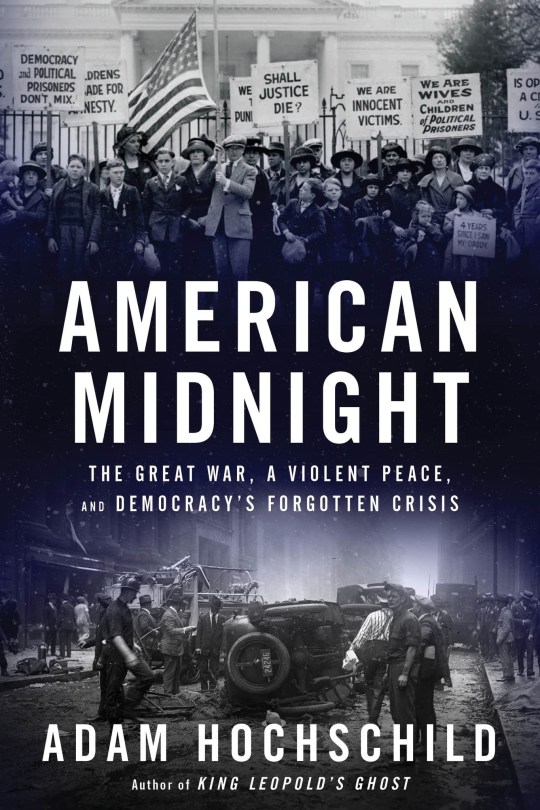#Adam Hochschild
Text
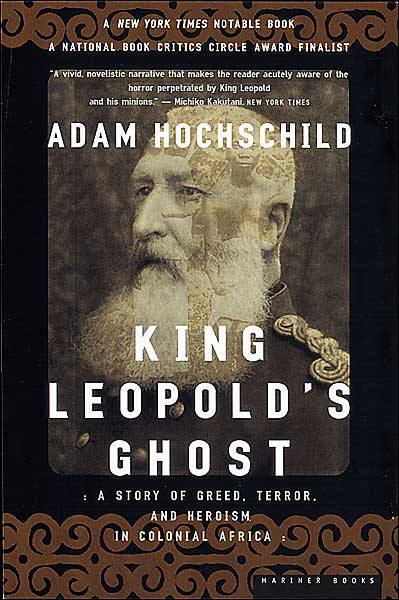
31 notes
·
View notes
Link
I listened to part of this interview when I ran some errands this afternoon. This discussion of America’s history at the start of WW I was something I had no knowledge of until hearing this. While what we, as Americans, are dealing with since Trump’s election in 2016 through today, 6 years later. SEDITION, ATTEMPTS TO OVERTURN THE ELECTION & THE CONSTITUTION, INCREASING VIOLENCE ACROSS THE COUNTRY but I never knew that actions like those happened just over 100 years ago. I HIGHLY RECOMMEND LISTENING TO THIS PODCAST.
Also here is another interview with the author Adam Hochschild about his latest book, American Midnight:
youtube
8 notes
·
View notes
Text

I have 30 feet of just travel literature at home.
Drawn in Adobe Fresco on iPad from an iPhone photo. The only book I regret buying is Aku-Aku by Thor Heyerdahl because he was such an asshole. He wanted artefacts from Easter Island indigenous peoples who were reluctant to give them to him, so he lied and cheated and fooled them into doing so. Those artefacts are in Oslo now instead of still on the Island. SUCH a complete asshole.
#adobefresco#ipad#handrawn#Peter Hopkirk#Tony Horwitz#Eva Hoffman#Jack Hitt#Heinrich Harrer#Eric Hansen#Adam Hochschild#Thor Heyerdahl
1 note
·
View note
Text

“American Midnight” Adam Hochschild Interesting but very uncomfortable read. Plenty of interesting events and characters and I would watch a series set in this time and place.
(I also want a liberty sandwich and some freedom fries please)
0 notes
Text
Don't often have an emotional reaction to works of history but this, from Adam Hochschild's "American Midnight" about the IWW Espionage Act trial in Chicago, destroyed me
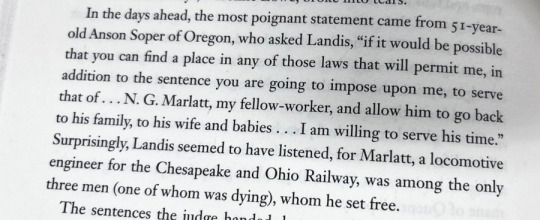
1 note
·
View note
Text
"An ancient English law made it a crime to witness a murder or discover a corpse and not raise a 'hue and cry.' But we live in a world of corpses, and only about some of them is there a hue and cry."
--Adam Hochschild, King Leopold's Ghost
#reading tag#history#imperialism#cultures of dissociation#my posts#it is v hard to isolate quotes from this book because like all good writing the whole is greater than the sum of its parts#(also bc much of it is quite grim)#but ultimately my casementblogging is just an elaborate book rec#for a book which is only tangentially about him anyway. correctly so because the story is much bigger than that.
58 notes
·
View notes
Note
hey yeri!! i hope you're having a good week!! is there anything have you've read or watched recently??
hey again anon 💕 i missed you in april! how was your month? i (finally) finished late victorian holocausts by mike davis and started king leopold's ghost by adam hochschild, as long as the lemon trees grow by zoulfa katouh, 위기의 역사 (which i think is translated into history of crisis?) by oh geunyoung, a ton of manga (including a reread of dunmeshi hehe), some webtoons, and the collected poetry of jeong jiyoung! and then of course research papers and historical documents but i don't really count those HAHAHA
for what i've been watching... adjdfj i caught some episodes of fallout, been keeping up with dunmeshi, and if we're going to count "everything" i watched recently i saw ocean's eight split up into parts on tiktok (´• ω •`)
#anon#i'm currently writing a reference for goguryeo history#but so many is behind paywalls TAT#my friend joked i should put a “references used” pg at the end of tshb#and then i responded we're already 50+ sources deep KSDFJSDFJSD
13 notes
·
View notes
Text
Housekeeping 2023-24!

Name: Dan/Danny (Jugbe only if you're also West African)
Age (Zodiac): 18 (Scorpio)
Prounouns: He/Him and They/Them (She under duress and in public)
Sexuality: Lesbian
Gender: Transmasc Butch/Stud
DNI:
Under 16
Queerphobic, Xenophobic, Islamophobic, Antisemitic
Misogyn(oir)istic, Whorephobic,
Racist, Ableist, Fatphobic, Zionist
Lolisho/Pedo/Incest enjoyers
Supports, participates, tolerates, or justifies any of the above.
Blogs:
Art Blog: @dgtor-official
Writing Blog: @dyke-a-saur-writes
Culture/Language Blog: @between-the-kola-and-the-sea
NSFW Blog: @dannyafterdark
Links and Resources To Support Palestine, Congo, Sudan, and West Papua:
Free Palestine
Donate to Gaza Appeal
Books By Palestinian Authors or About Palestine
Doctors Without Borders
MAUSA Palestine Emergency
Boycott, Divestments, and Sanctions List
DRC is Bleeding (And The West Is Twisting The Knife)
HEAL Africa
King Leopold's Ghost, A Story of Greed, Terror, and Heroism in Colonial Africa by Adam Hochschild
PANZI Foundation
Keep Eyes on Sudan
Medicines sans Frontiers Refugees need water
Darfur Women Action Group
Thread by Sudanese Author Yasmin Abdel-Magied on Sudan
Sudan Next Gen
Free West Papua
Free West Papua 101
Further References and Resources
Voice of Papua
Tapol (Bahasa Indonesia)
#og post#housekeeping#imma start doing these#it would be funny to see what changes and what stays the same#also I mean everything I say on this blog#if you see sumn here you can ask me about it but i'm standin' on business fr#blog intro#also connecting my other blogs cause i do some cool fun things on those and i think ya'll would like it#free palestine#keep eyes on sudan#free west papua#congo is bleeding (and the west is twisting the knife)
13 notes
·
View notes
Note
You have great taste, can you recommend some books?
Hi anon i have no clue what genres you're into so i'm gonna just start listing off random titles.
the post office girl (stefen zweig), transit (anna seghers), the dry heart (natalia ginzburg), passing (nella larsen), heaven (mieko kawakami), lady macbeth of mtsensk (nikolai leskov), the mermaid of black conch (monique roffey), the golden notebook and the fifth child (doris lessing), the passion (jeanette winterson), on beauty (zadie smith), hons and rebels (jessica mitford), reform or revolution (rosa luxemburg), cassandra a novel and four essays (christa wolf), the fall of language in the age of english (minae mizumura), caste (isabel wilkerson), spain in our hearts (adam hochschild), from reverance to rape (molly haskill), trick mirror (jia tolentino)
11 notes
·
View notes
Note
For the book recs:
General Recs: Destiny Disrupted by Tamim Ansary (A history of the world written from the Isalmic world's perspective; Ansary, I believe, is Afghan or his family is.), King Leopold's Ghost by Adam Hochschild (this is his best known work, but all his work is excellent), Wisdom Sits in Places: Landscape and Language Among the Western Apache by Keith H. Basso (it's more or less an anthropological ethnography and reporting, but very well written; a good primer for thoughts on decolonizing history and notions of place in the United States).
For British Imperialism specifically: (1) An Era of Darkness: The British Empire in India - Shashi Tharoor, (2) The Blood Never Dried: A People's History of the British Empire - John Neswinger, (3) Lawrence In Arabia - Scott Andreson, (4) Return of the King: The Battle for Afghanistan - William Dalrymple, (5) Empireland: How Imperialism has Shaped Modern Britain - Sathnam Sanghera.
Also: Histories of the Hanged: the Dirty War in Kenya and the End of Empires by David Anderson, and The Washing of Spears by Donald R. Morris (the version with an introduction by Mangosuthu Buthelezi) are both excellent, if not exactly written for non academic backgrounds. Excellent information but at times a little too "high level" for my high schoolers. Also Making Sense of the Troubles by David McKitterick and David McVea ( 2 journalists) if you want to wade into Northern Ireland, conditional loyalty, and all that jazz.
Apologies this got so long! I made a similar list of books for my students earlier this year, so I saw your call and go excited all over again.
I did my best for a list with diverse authors, authors writing about their home countries, and those with critical examination. Finding items written in English or in translation is very difficult and the ivory tower of academia can be a challenge in the extreme.
I hope you find something here that's of interest here, or maybe someone else will :)
Thanks! One of the books I just ordered is The Great Partition by Yasmin Khan, which is a general history of the Partition of India. I've been listening to the Partition podcast by Neha Aziz, which is more about how the partition is remembered, taught, and being preserved.
64 notes
·
View notes
Text
Negative Habits to Avoid for UPSC Preparation
Imagine preparing for the UPSC exam is like setting off on a thrilling adventure. But just like any adventure, there are challenges to overcome. It takes a lot of hard work, sticking to your goals, and having a good plan. But, sometimes, even if you're really trying your best, you might find yourself doing things that could make it harder for you to succeed. In this guide, we'll explore common negative habits faced by UPSC aspirants and provide straightforward solutions to overcome them. By implementing these simple strategies, aspirants can navigate through challenges effectively and achieve success in their UPSC journey.
Procrastination - Putting Off Tasks

Procrastination is when we delay tasks or waste time on unimportant things. Many UPSC aspirants struggle with procrastination, which can lead to missed study sessions and last-minute pressure.
To overcome procrastination, break your study tasks into smaller, manageable parts. To create a sense of urgency, establish particular deadlines for every task. By taking small steps consistently, you can avoid procrastination and stay on track with your study schedule.
“You may delay, but time will not.”
― Benjamin Franklin
There are always distractions, if you allow them! Successful people remain optimistic and concentrated on their goals regardless of their surroundings. They stay focused. They avoid getting distracted, which is common in today's digital world. Social media, notifications, and other distractions can easily divert our attention away from studying.
To avoid distractions, create a dedicated study space that is free from potential distractions. Turn off notifications on your phone and use productivity tools to block distracting websites. Set specific times for studying and avoid multitasking. By minimizing distractions, you can improve focus and productivity during your study sessions.
Distractions - Losing Focus

“Work is hard. Distractions are plentiful. And time is short.”
― Adam Hochschild
Lack of Consistency

Consistency is really important for doing well in UPSC preparation. It’s key to success. However, many aspirants struggle to maintain a consistent study routine.
To overcome this, establish a daily study schedule and stick to it religiously. Make sure you stick to your study schedule and give it more importance than other things. Set realistic goals for each study session and keep checking how well you're doing. By making studying a habit and sticking to a consistent routine, you can maximize your productivity and progress in your UPSC preparation.
“Success isn't always about greatness. It's about consistency.
Consistent hard work leads to success. Greatness will come.”
― Dwayne Johnson
Neglecting Health and Adequate Sleep

UPSC preparation can be mentally and physically demanding, and many aspirants neglect their health in pursuit of their goals. However, neglecting your health can have negative consequences on your ability to study effectively. Sleep is essential for cognitive function, memory retention, and overall well-being. However, many aspirants neglect their sleep in favor of studying late into the night. This can lead to sleep deprivation, which can impair your ability to focus, concentrate, and retain information.
To prioritize your health, make sure to get an adequate amount of sleep each night. Aim for at least 7-8 hours of sleep to ensure that your mind and body are well-rested. In addition, make time for regular exercise and physical activity to reduce stress and improve overall well-being. Finally, don't forget to eat a balanced diet and stay hydrated to fuel your body and brain for studying.
Relying on One Study Method

Every aspirant has their own preferred study method, whether it's reading, taking notes, or practicing past papers. However, relying solely on one study method can limit your learning and comprehension.
To overcome this, try diversifying your study methods to engage different parts of your brain. For example, if you're used to reading, try incorporating more visual aids or discussing concepts with peers. Try out various methods of studying until you discover which one suits you the most. By diversifying your study methods, you can improve your understanding and retention of the material.
Negative self-talk can be dangerous to your confidence and motivation. Many aspirants struggle with self-doubt and fear of failure, which can hold them back from reaching their full potential.
To overcome negative self-talk, practice self-compassion and positive affirmations. Instead of focusing on your shortcomings, celebrate your achievements and strengths. Be around friends and family who support you and have faith in your skills. By cultivating a positive mindset and practicing self-love, you can overcome self-doubt and achieve success in your UPSC journey.
Negative Self-Talk - Self-Doubt
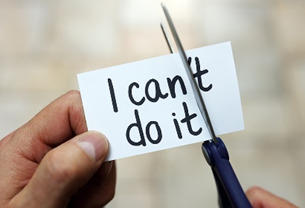
"One important key to success is self-confidence.
An important key to self-confidence is preparation."
― Arthur Ashe
Trying to Read Everything

UPSC aspirants are often overwhelmed by the sheer volume of reading material available. Many aspirants feel pressured to read every book and resource on a given topic, leading to stress and burnout.
To overcome this, focus on quality over quantity when it comes to reading. Prioritize essential books and resources that cover the core concepts and topics of the UPSC syllabus. Take notes as you read to help reinforce your understanding and retention of the material. Remember, it's better to thoroughly understand a few key concepts than to skim/go through numerous resources without grasping the core concepts.
Disorganization can hinder your ability to study effectively and efficiently. Many aspirants struggle to keep track of study materials, deadlines, and important dates.
To overcome this, create a study schedule and organize your study materials in a systematic manner. Use folders, binders, or digital tools to keep your study materials organized and easily accessible. Break down your study schedule into smaller, manageable tasks and set deadlines for each task. By staying organized, you can reduce stress and improve productivity in your UPSC preparation.
Lack of Organization

“For every minute spent organizing, an hour is earned.”
― Benjamin Franklin
Misplaced Study Groups

Study groups can be a valuable resource for UPSC aspirants, providing support, motivation, and shared knowledge. However, not all study groups are created equal, and some aspirants may find themselves in study groups that are not conducive to effective studying.
To overcome this, choose study partners wisely and find individuals who are serious and committed to their UPSC goals. Look for study groups or forums where you can engage with like-minded aspirants who share your dedication and enthusiasm for UPSC preparation. By surrounding yourself with supportive and motivated study partners, you can enhance your learning and stay on track with your UPSC goals.
Overcoming negative habits is essential for UPSC aspirants to succeed in their journey. By implementing simple strategies such as breaking tasks into smaller parts, minimizing distractions, maintaining consistency, prioritizing health, diversifying learning methods, fostering a positive mindset, finding a balance between work and study, focusing on quality reading, staying organized, choosing study partners wisely, using the internet judiciously, and prioritizing sleep, aspirants can navigate through challenges effectively and achieve success in their UPSC preparation. Remember, success in the UPSC examination requires dedication, perseverance, and a willingness to overcome obstacles. Keep pushing forward, stay focused on your goals, and believe in yourself—victory is within reach!
#upsc#education#upsc2024#upscpreparation#upscstudymaterial#quotes for upsc aspirants#quotes for students motivation#Misplaced Study Groups in UPSC Preparation#Lack of Organization in UPSC Preparation#Trying to Read Everything in UPSC Preparation#Negative Self-Talk - Self-Doubt#Relying on One Study Method#Neglecting Health and Adequate Sleep in upsc preparation#Lack of Consistency in upsc preparation#Distractions in upsc preparation#procrastination in upsc preparation#Procrastination#upsc syllabus ignorance#upsc exam strategy mistakes#ENSURE IAS coaching tips#upsc self-study bad habits#upsc time management mistakes#ENSURE IAS academy tips#upsc coaching center habits to avoid#upsc study routine mistakes#UPSC#bad habits for upsc exam#common mistakes in upsc preparation#ENSURE IAS preparation tips#negative habits for upsc aspirants
2 notes
·
View notes
Text
New devotional reading to Ares: ‘To End All Wars’ by Adam Hochschild
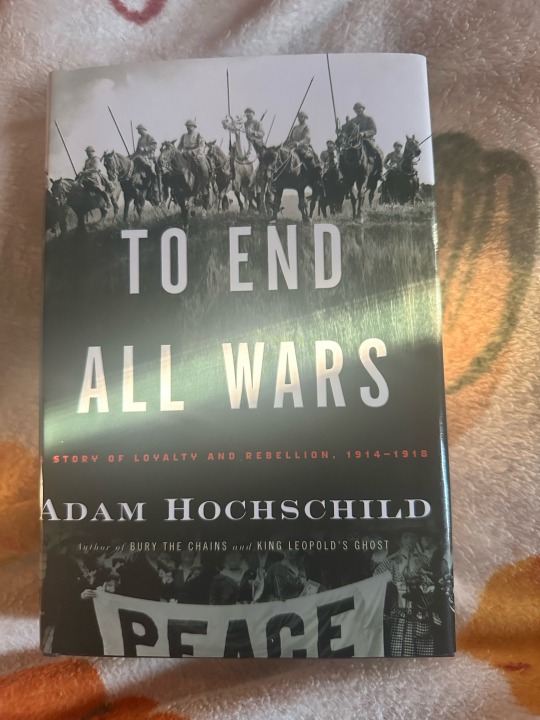
As a bookworm being able to turn reading into a devotional act has been wonderful!
#hellenic polytheism#helpol#hellenic pagan#hellenic pantheon#hellenic paganism#ares deity#hellenic gods#ares worship
12 notes
·
View notes
Text
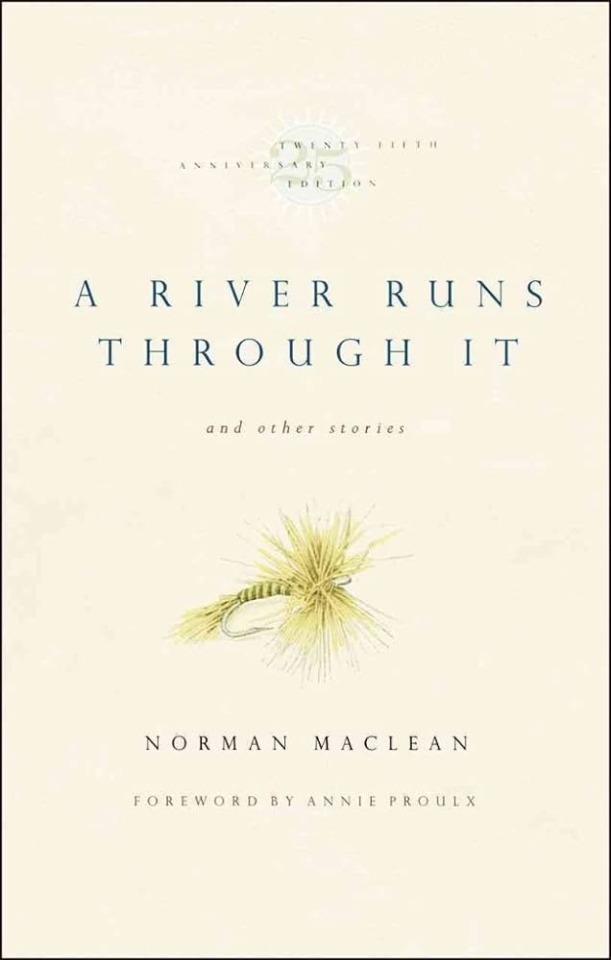


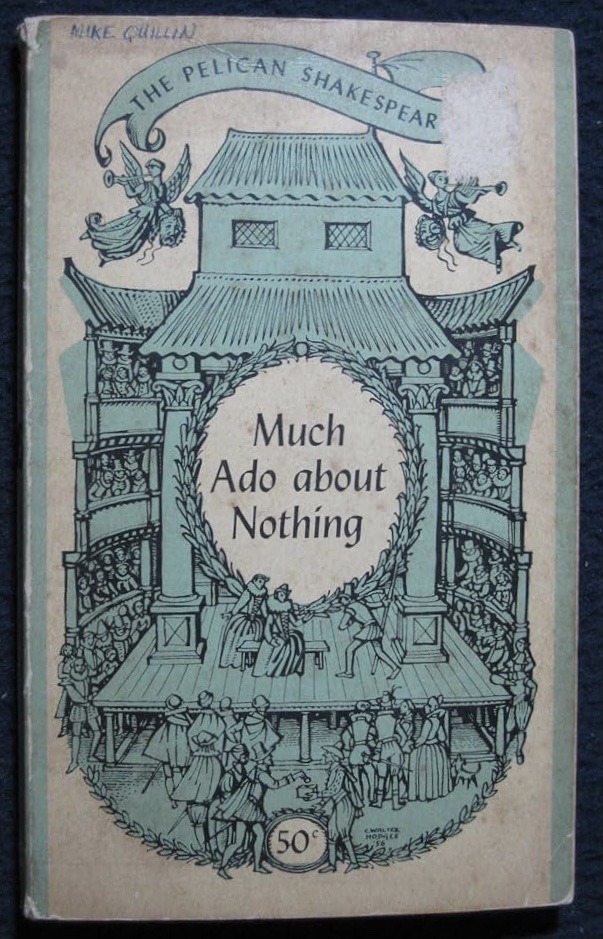
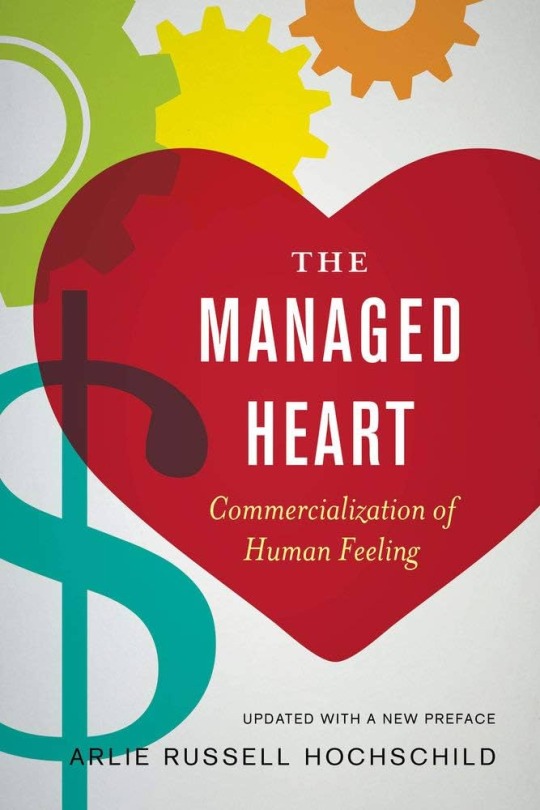




i was tagged by @cauldronoflove to share my top 9 reads of 2023 or top 9 books on your 2024 tbr, so in no particular order, here are my favorite reads of last year!
a river runs through it and other stories by norman maclean
odetta: a life in music and protest by ian zack
how the word is passed by clint smith
much ado about nothing by william shakespeare
the managed heart: the commercialization of human feeling by arlie russell hochschild
toxic inequality by thomas m. shapiro
new queer cinema: the director’s cut by b. ruby rich
race for profit by keeanga-yamahtta taylor
i put a spell on you by nina simone and stephen cleary
thank you for the tag jj, this was fun!! i tag @liquidsleep @quiet-fawn-of-the-galaxy @adam-saw and anyone else who’d like to join!!
6 notes
·
View notes
Note
Checked my shelf for more nonfiction:
Seabiscuit: An American Legend by Laura Hillenbrand. (About the titular racehorse but also a lot of good stuff on the racing culture of the era)
Manhunt: The 12 Day Chase for Lincoln’s Killer by James Swanson
The Road to Jonestown: Jim Jones and Peoples Temple by Jeff Guin
King Leopold’s Ghost by Adam Hochschild (The Belgian colony in the Congo)
The Great Influenza by John Barry (The Spanish Flu)
Say Nothing by Patrick Radden Keefe (The Troubles)
Ekaterinburg: The Last Days of the Romanovs by Helen Rappaport
Disney Wars by James Stewart (Michael Eisners tenure at Disney, a crazy amount of corporate espionage and back room dealing, it’s a trip)
We Wish to Inform You That Tomorrow We Will Be Killed with Our Familes by Philip Gourevitch (Rwandan Genocide)
Thank you for these recs! I was able to find access to most of them and have them in my tbr!! Very promising list! 😁
3 notes
·
View notes
Note
I need new books to read this year... can you recommend your favourite history books? Any era/subject pre-1900!!
Oh, boy! Fun. Okay - !
One of the best historical writers I've ever read is Barbara Tuchman. Not only is her research top-notch, she can also pull you along like a story. A lot of her books are about the 20th century, but A Distant Mirror is about the 14th century, an absolutely wild 100 years of warfare and social upheaval and - of course - a heaping helping of Yersinia pestis.
One of my professors when I was working on my first degree (in history) was Dr. Carole Rawcliffe. She is one of the experts on the history of medicine, and her Medicine and Society in Later Medieval England is an excellent read despite the rather dry title.
Another absolute classic along those lines is by William Manchester. Like Tuchman, he's better known for his books on the 20th century, but he wrote an excellent book about the transition from the Middle Ages to the Renaissance. A World Lit Only by Fire is considered a historical classic for good reasons!
Another I thoroughly enjoyed - and then I'll leave the Middle Ages, I promise! - is Chris Wickham's The Inheritance of Rome, about the first 600 years after the fall of the Western Roman Empire.
Thomas Cahill - who unfortunately recently died - wrote a ton of books on lesser-known people/places in the historic record, but my favorite by him is Sailing the Wine-Dark Sea, a wonderful little glimpse into Ancient Greece. His other books are good as well (the ones I've read, anyway), but that was the one I liked most.
Robert K. Massie is probably best known for his classic Nicholas and Alexandra, but he also wrote an amazing book about Peter the Great (literally called... Peter the Great) about the tsar who dragged Russia kicking and screaming into being a more "European" culture. St. Petersburg, the city he founded to be closer to European neighbors, is named for him.
Late Victorian Holocausts by Mike Davis is a very rough read, but also an important one. It looks at how colonial rule in the late 1800s impacted the colonized lands, particularly India. It's brutal, but well worth a read. Along the same lines, King Leopold's Ghost, by Adam Hochschild, looks at the impact of colonial rule in the Congo.
John Keay has written extensive books on the history of China and India. I haven't read the one about India, but the one on China is superb.
A History of Private Life (various authors) is a 5-volume set covering the Classical period up to the modern day. It's more academic than the pop history I've mentioned so far, but fascinating. I love thinking about everyday lives far more than a list of important names and dates, y'know?
A People's History of the United States (Howard Zinn) and Lies My Teacher Told Me (James Loewen) both well earn their reputation as the books criticizing the way American history is learned in the US. They cover a lot of ground before 1900, but do go into the 20th century. I'm not super into US history, but The American West and Bury My Heart at Wounded Knee (both by Dee Brown) are very good. (If you're familiar with the fictional Lonesome Dove, the Goodnight-Loving trail covered in The American West is the inspiration.)
The Eternal City by Ferdinand Addis is one of the few English-language books that covers Rome beyond the ancient empire and WWI. I'm a little biased towards Rome these days (and spend a whoooooole lot of time there 😅), but I promise the book is good! 😉
After the Ice (Steven Mithen) and Eve's Seed (Robert McElvaine) are both looks at truly ancient history, and well worth a read. (Full disclosure, McElvaine was also one of my professors.)
Rabid by Bill Wasik and Monica Murphy is a history of - you guessed it! - rabies. It's both eminently readable and terrifying, as you could probably guess. Plagues and Peoples by William McNeill more broadly covers epidemics through the years.
Some interesting and more obscure topics: Death by Drama and Other Medieval Urban Legends (Jody Enders) is more academically dry than the title suggests, but still very interesting! Madame Blavatsky's Baboon (Peter Washington) is about the rise of spiritualism in the 19th century. Lucy's Bones, Sacred Stones, and Einstein's Brain (Harvey Rachlin) looks at the history of culturally-important artifacts. And along those lines, there's always learning a little more about the people who dealt with such artifacts, like Gertrude Bell in a book by Georgina Howell (literally just titled Gertrude Bell).
A few other favorites: The Victorians (A.N. Wilson), A Gentle Madness (Nicholas Basbanes; it's about the history of book collecting), The Tudors (G.J. Meyer), Medieval Lives (Terry Jones), and Blood and Roses (Helen Castor, using the Paston Letters as a central theme in a broader history of the Wars of the Roses). (When I was in England, I lived where the Pastons did.) And just thought of another: Nabokov's Butterflies (Rick Gekoski) is a nice little collection about authors and books.
Oh! And The Lion in the Living Room (Abigail Tucker) is great fun - it's a history of cats!
With a few exceptions, these are pretty broad overviews. If you'd like anything more specific, let me know!
(For fascinating, well-written-but-not-always-factually-sound takes on history, Bill Bryson's A Short History of Nearly Everything and At Home are both great reads, but... don't accept everything he says as fully true and accurate. The same is true of Daniel Boorstin [The Discoverers, The Creators, The Seekers] - really great reads, but flawed.)
(If you want fiction that gets the history right: The Daughter of Time [Josephine Tey; covers late 15th century England], The Crimson Petal and the White [Michel Faber; covers the 1870s in England - but be warned, there's some graphic sex in it], Doomsday Book/To Say Nothing of the Dog/Blackout/All Clear [Connie Willis; cover - in order - the 14th century, 19th century, and WWII in England), Pachinko [Min Jin Lee; it's 20th century, but about Koreans in Japan, which I knew almost nothing about before reading], The Luminaries [Eleanor Catton; 19th century New Zealand], and the aforementioned Lonesome Dove [Larry McMurtry; 19th century US] are all excellent reads as well! Oh, and Hilary Mantel's books about Thomas Cromwell in 16th century England [Wolf Hall/Bring Up the Bodies/The Mirror and the Light] well deserved the awards showered on them, including two Booker Prizes. The Inquistor's Tale [Adam Gidwitz] is a book for kids and has magic, but it's super cute, well-written, and fun. Plus it has Guinefort, the only dog to become a saint! [Well... unofficially a saint.] I've recently gotten The Books of Jacob [Olga Tokarczuk], so haven't read it yet, but it's set in 18th century Poland and the author won the Nobel Prize in Literature! Speaking of good research and heaps of awards: Adam Johnson's The Orphan Master's Son is phenomenal. It's set in modern North Korea, but I'd still count it, especially as it covers a place many people know little about. In the same vein, Anthony Marra's A Constellation of Vital Phenomena does the same for modern Chechnya.)
Hope something piques your interest! Happy reading! 😁
14 notes
·
View notes
